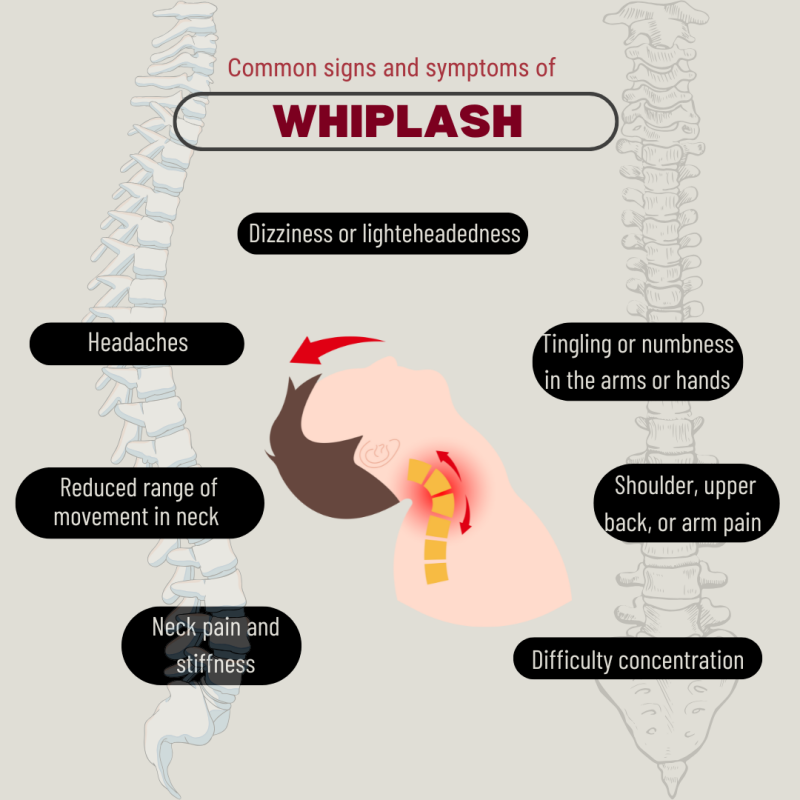Whiplash
Whiplash is a type of neck injury that typically occurs when the head is suddenly and forcefully jolted backward and then forward, often in a car accident or other trauma-related events. This sudden movement can strain the muscles, ligaments, and tendons in the neck, causing pain, stiffness, and difficulty with movement. Symptoms of whiplash can vary, but common signs include neck pain, headaches, dizziness, shoulder pain, stiffness in the neck, and sometimes tingling or numbness in the arms.
Common Causes of Whiplash
Whiplash is most commonly associated with rear-end car accidents, but it can also occur in other situations that involve sudden force or impact. Common causes include:
- Car Accidents: Rear-end collisions are the most frequent cause of whiplash, where the body is propelled forward while the head remains briefly stationary, creating strain on the neck.
- Sports Injuries: Activities such as contact sports (e.g., football, rugby, or boxing) can lead to sudden, forceful movements that cause whiplash-like symptoms.
- Physical Trauma: Any trauma to the neck, such as from a fall or a blow to the head, can result in whiplash.
- Accidental Impact: Events like physical abuse or certain workplace injuries can also lead to whiplash-like injuries due to abrupt head movements.
How Massage Therapy Can Help with Whiplash
Massage therapy is a powerful tool for managing and treating whiplash injuries, as it targets muscle tension, promotes healing, and improves circulation. Here’s how therapeutic massage can help:
- Reduce Muscle Tension: Whiplash injuries often cause muscle tightness and spasms in the neck, shoulders, and upper back. Massage therapy helps release this tension and restore proper muscle function.
- Promote Healing: By increasing blood flow to the injured area, massage can aid in the healing of damaged tissues, reducing inflammation and promoting faster recovery.
- Improve Range of Motion: Stiffness is a common symptom of whiplash, and massage therapy can help restore flexibility and movement in the neck and shoulders.
- Alleviate Pain: Regular massage can help reduce pain levels associated with whiplash, providing much-needed relief from soreness and discomfort.
- Prevent Chronic Pain: If left untreated, whiplash can lead to chronic pain and long-term discomfort. By addressing the issue early with massage therapy, we can help prevent these long-term effects and improve your overall quality of life.

Massage therapy offers a natural and effective approach to managing whiplash pain and discomfort. By combining massage with other treatments, you can experience a faster and more thorough recovery, allowing you to return to your regular activities with greater comfort and ease.

